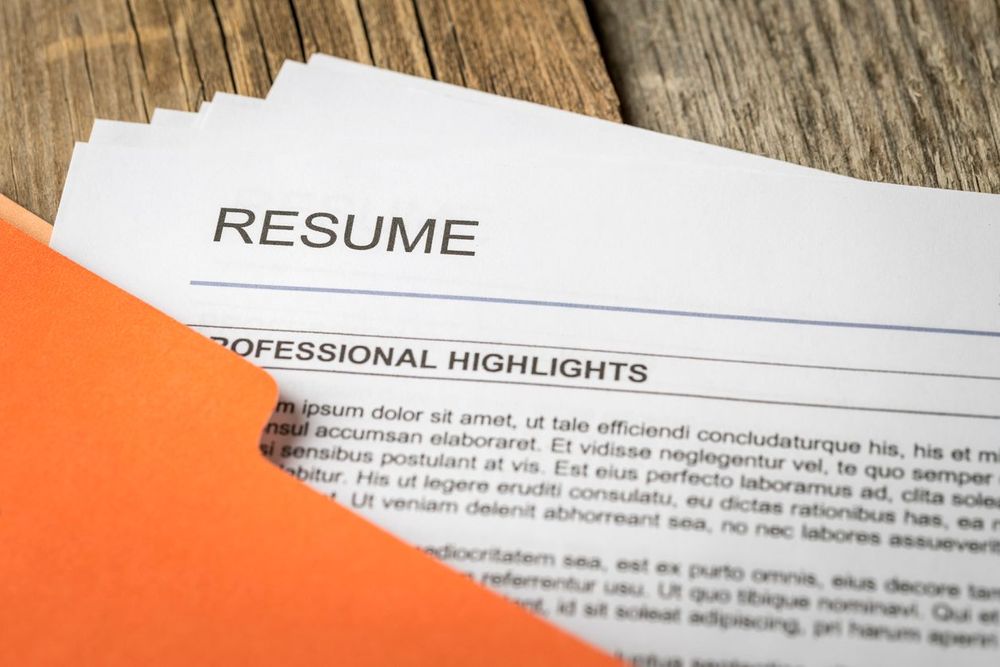
Deciding how long your resume needs to be is no simple task. If you ask one person, they might say that bigger is better. But another individual could tell you to keep it one page long. Which answer is correct? In truth, there’s no one-size-fits-all answer. A resume that’s too long could frustrate a hiring manager, while one that’s too short could make you seem underqualified for the job.
Under certain circumstances, a one-page resume is the best way to impress a hiring manager. Typically, a resume of this length is appropriate for an entry-level worker or a college graduate. You can’t fit years of experience on a one page resume, but you can fit a few important details.
If you don’t have very relevant experience or education, a hiring manager won’t want to read about it. They don’t care how many extracurricular activities you did in high school, nor do they care about your work experience in a completely different field. Writing about non-relevant experiences takes away from your relevant experiences.
Think about it this way. You have six seconds to catch the attention of a hiring manager. Did you craft your resume in a way that gets their attention early on? If not, go through your resume and find ways to make it more eye-catching.
As you decide how long to make your resume, consider your career goals. Are you looking to get a position in management? If so, you need a resume that’s longer than just one page. It’s nearly impossible to showcase your capabilities in such a short resume.
On the other hand, you might be applying for an entry level position. The hiring manager won’t care about every single job on your resume. They want to be able to take a quick look at your resume and find out if you’re qualified.
Sure, you could extend your resume by three pages if you include every job you had on your resume. However, you don’t need to go back to a job you had 15 years ago. Depending on your experience, you may be better off using jobs you had in the past five years.
There are exceptions to this rule, but you should always consider how recent your positions are. Technology and other changes sometimes make jobs from 10 years ago irrelevant.
If your resume is longer than one page, look at your wording. When you describe your achievements, do you go into too much detail? You should use keywords and keep descriptions short. A resume that’s too wordy and long won’t impress anyone.
There’s no rule for how long your job or achievement descriptions should be. Before you send in your resume, read it over with a critical point of view. Does it seem longer than it needs to be? How can you shorten the descriptions without making them too vague?
One page might not be enough for you to make a strong case for your employment. If one page isn’t enough, you should take no shame in a two page resume. It’s better to have two pages than to have one page in a tiny font or to have one page that misses some key points.
If you have experience in a job or you find that your one-page resume is disorganized, you should use two pages. People with more than seven years of experience might not be able to fit everything on one page. To give the hiring manager all the information they need, you may need two pages.
Although the hiring manager will probably read both pages, they will pay the most attention to the first page. You should make sure you grab their attention and put the most relevant details on the first page. If this means adjusting the format or order of your resume, you should do just that.
Generally, job seekers should stick to a one or two page resume. But, under some circumstances, a three page resume is needed. This is often the case with federal jobs, senior management, and scientific positions.
The longer resume allows you to include lists of publications, licenses, and speaking engagements. With that said, you should still try to keep your resume as short as possible. There’s no need to include unnecessary or irrelevant details.
If you write your resume and it is three or more pages, evaluate the job title. Does it really require you to list all of your mentions in written publications? In some cases, you might benefit more from mentioning that you have several mentions.
The truth is that the length of your resume isn’t as important as the content you have in the resume itself. When a hiring manager reads your resume, they want to know that you’re a suitable candidate for the position. Your goal should be to write a resume that makes a strong case and shows the hiring manager why they should hire you.
A good way to look at your resume is to think of it as the back cover of a book. When you go to the library, you probably read the back cover to determine whether or not you want to read the book. In some cases, five sentences might be enough to entice you. But, at other times, two paragraphs is more suitable. The content of the text matters so much more than the actual length.
You can always ask others for input on your resume. After you work on your resume, send it over to a few friends or family members. Ask them about the length of their resume, and you can get constructive criticism. Using the feedback you receive, you can alter your resume to make it more appealing.
Lorem Ipsum is simply dummy text of the printing and typesetting industry. Lorem Ipsum has been.
